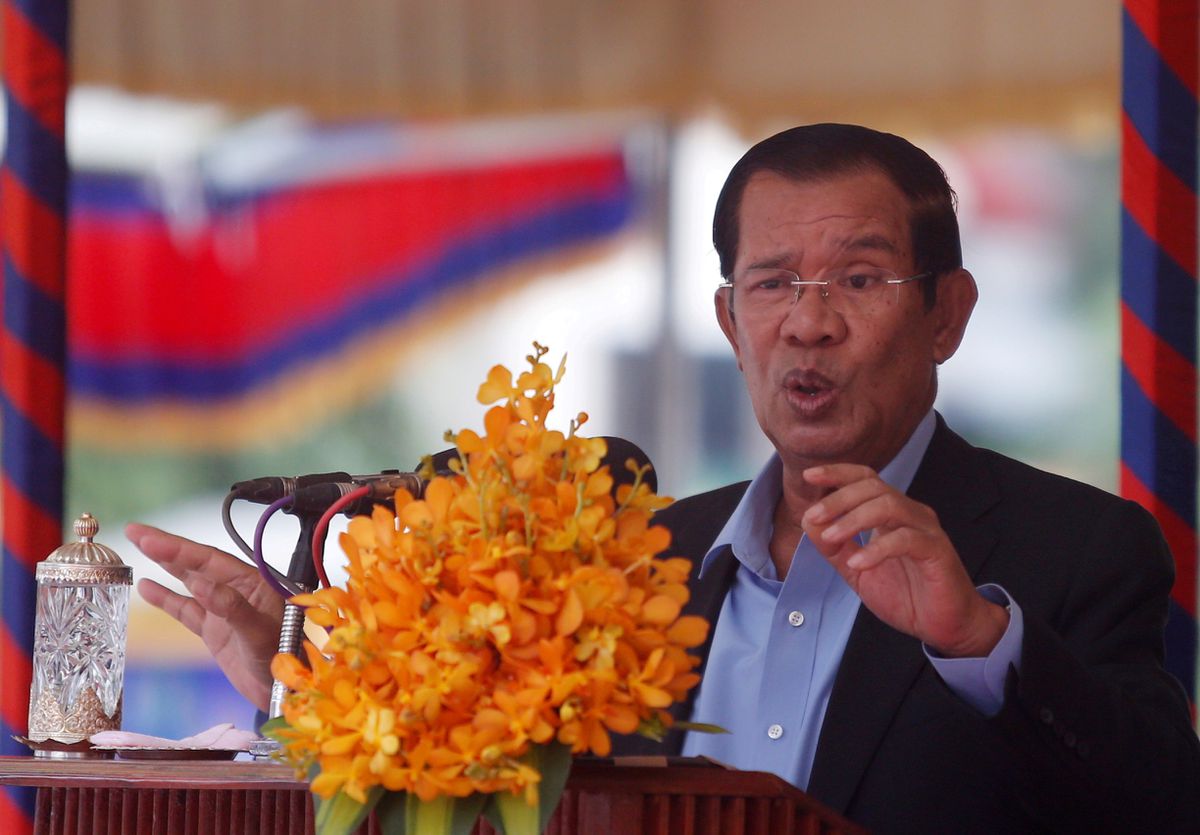Marzuki Darusman co-writes in the Bangkok Post that Asean’s credibility is once-again on the line as Cambodia, the new Asean chair, signals its intention to normalise relations with Min Aung Hlaing and his illegal junta.
By Marzuki Darusman & Tan Sri Syed Hamid Alba & Kobsak Chutikul & Teddy Baguilat Jr
13 December, 2021
On Dec 5, soldiers backed by the Myanmar junta rammed a military truck into a group of peaceful protesters in the country’s commercial capital Yangon, killing at least five people and injuring at least eight.
Then on that same day, videos of junta soldiers shooting and burning the bodies of 11 villagers, including five children, in the northern region of Sagaing, emerged on social media.
These are just two out of the many examples of the Myanmar junta’s horrific brutality against the people of Myanmar, which has only intensified since it staged a military coup on Feb 1.
The group’s response to the atrocities being committed by one of its member states came with neither strategy nor sense of urgency. Only after three months after the coup did Asean leaders and Myanmar’s junta leader, Senior General Min Aung Hlaing, agree to the Five-Point Consensus on Myanmar, which called for the immediate cessation of violence, constructive dialogue among all parties, mediation, humanitarian assistance and a visit to Myanmar by an Asean special envoy.
While the consensus was a positive start, the junta showed no commitment to respect it. Instead, it has killed at least 1,300 people, arrested at least 10,750 people, displaced more than 200,000 people, and pushed nearly half of Myanmar’s population into poverty.
In addition to failing to take any meaningful action to hold Min Aung Hlaing accountable to the consensus, Asean has also not shown any significant progress on the agreed points. Despite the junta being responsible for creating the human rights and humanitarian disaster in the country, the organisation continued to allow the junta to represent Myanmar at ministerial meetings during the year.
It therefore came as a pleasant surprise that in an unprecedented move, the regional bloc excluded the Myanmar junta from its annual Asean Summit in October, citing a lack of progress by the junta to implement the consensus.
At the time, Cambodian Prime Minister Hun Sen said that Myanmar had “abandoned its right” to attend Asean meetings. For a moment, it seemed that he was attempting to take a tougher approach.
It was not to be. Any credibility that Asean gained, has been lost. Mr Hun Sen met a representative of the junta last week, now calling Myanmar a “family member” of Asean, that “must have the rights to attend meetings”.
He also confirmed that he will travel to Myanmar next month to work with the junta.
Such engagement by the new Asean chair risks normalising the situation in Myanmar and legitimising the junta — it does not only undermine Asean’s consensus and efforts to reach it over the past year, but also disregard the people of Myanmar’s calls for democracy.
Every day since Feb 1, people from all walks of life in Myanmar — including youth, women, healthcare workers, and civil servants — have been tirelessly demonstrating in opposition to the junta as part of the Civil Disobedience Movement.
Many have shown their support for the National Unity Government of Myanmar (NUG), the duly-elected representatives of the people, who have been administering as a government in areas where the military has no control.
Some Asean Dialogue Partners and the European Parliament have passed resolutions to formally recognise the NUG as the only legitimate representatives of Myanmar.
However, Asean has yet to engage publicly with the NUG, despite “dialogue among all parties” being a key point of its own consensus.
Meanwhile, the international community has been overly relying on Asean’s efforts, waiting for the bloc to take the lead.
It is becoming clear that they should not wait any longer.
To prevent any further escalation of violence, it is crucial that the international community intervenes before Asean loses all credibility, and more lives are lost. Coordinated action is needed to cut diplomatic and business relations with the junta, and hold the junta accountable for its crimes. As an immediate step, Asean should make progress on its consensus by engaging with “all parties”, including the NUG, ethnic armed organisations and the Civil Disobedience Movement.
Without a tougher approach against the junta that is rooted in the will of the people of Myanmar, Cambodia’s efforts in the coming year would only further delay an end to the crisis, see further bloodshed, and more regional and international implications.
Irreparable harm could also be done to the unity and cohesion of Asean, and thus to its central role in the geopolitical and strategic architecture of the Indo-Pacific.
Asean must hold the line. However, the time for the international community to take its own bold actions on Myanmar is now.
Tan Sri Syed Hamid Alba is former foreign minister of Malaysia. Marzuki Darusman is former attorney general of Indonesia and former chair of the UN Fact-Finding Mission on Myanmar. Kobsak Chutikul is a retired ambassador of Thailand and former elected member of parliament, while Teddy Baguilat Jr is a former governor and member of the Philippines House of Representatives.


